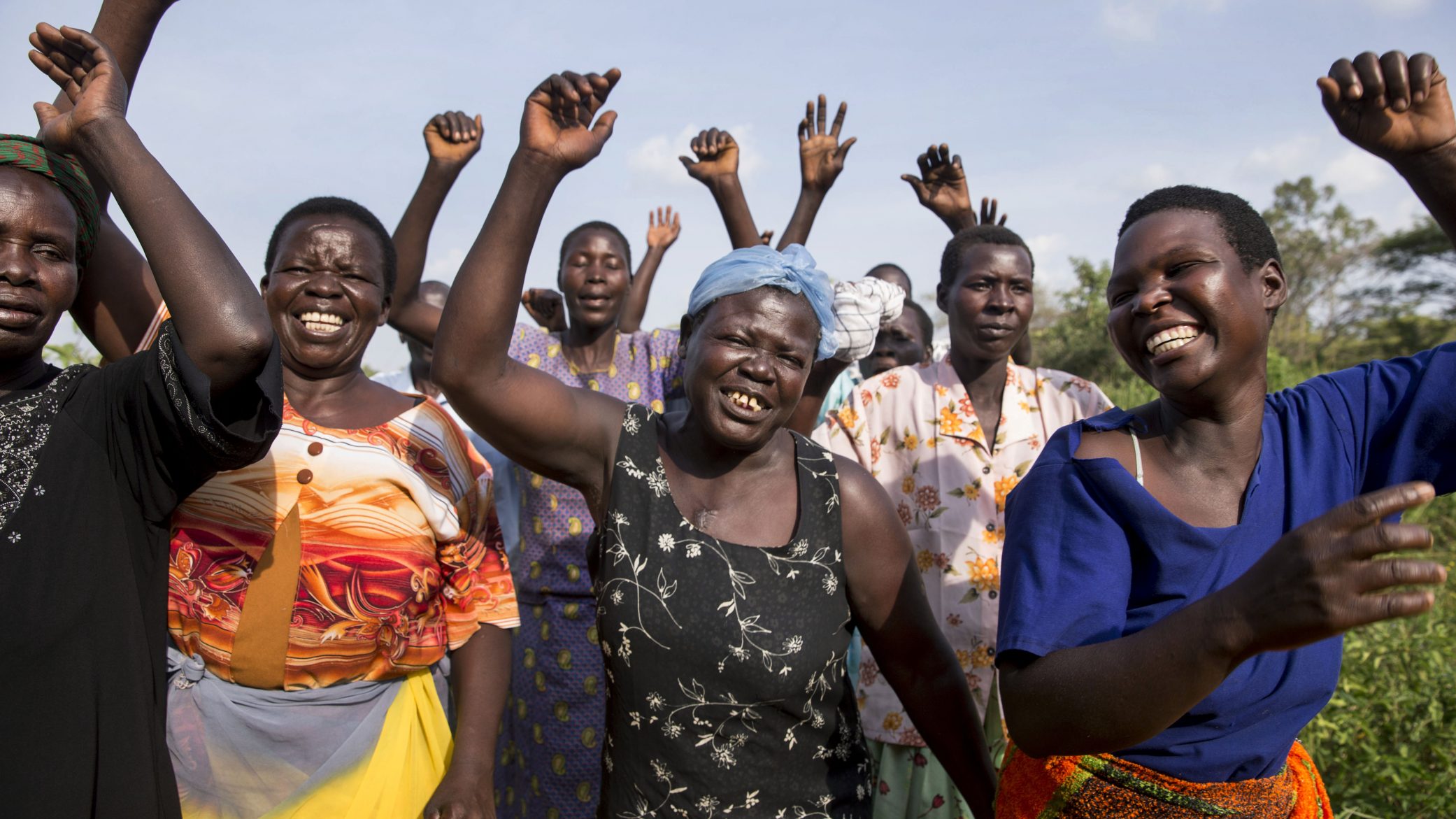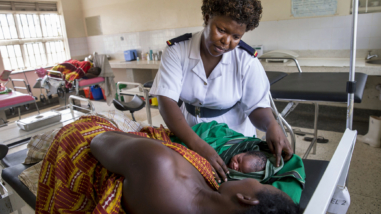For more than a decade, the Hewlett Foundation has supported organizations working on a very big worldwide challenge: how to increase people’s ability to understand where their governments get money, how that money is spent, and whether commitments for delivering health care, education and other public services are being fulfilled. While this is not an effort to export American-style democracy, it is based on the notion that, empowered with information, citizens can encourage politicians, public officials and other power-brokers to be accountable; greater accountability will translate into better government services; and better services, in turn, will improve health and well-being.
We’ve been part of a community of funders, and have developed close relationships with colleagues at the Omidyar Network, the Ford Foundation, Open Society Foundations, the U.K. Department for International Development, the World Bank, and others who believe that greater transparency is fundamental to true government accountability. While our focus has been on low- and middle-income countries, particularly Mexico and in the regions of East and West Africa, we’ve gained a great deal from working with funders with a broader geographic reach. Along the way, we’ve supported, admired and learned from the commitment and creativity of many leaders in the field, and have been proud to be part of the creation of the Open Government Partnership, the International Aid Transparency Initiative, the Global Initiative for Fiscal Transparency, and many other efforts dedicated to shining a light on government actions.
That work has paid off. Compared with just a decade ago, far more information about the government revenue sources, public budgets and expenditures is now routinely available. Beyond this “new normal” of fiscal transparency, civil society is pressing for – and sometimes achieving – greater citizen participation. In some cases, this takes the form of involvement in participatory budgeting. In others, it means that citizens themselves are collecting information about the quality of government services in their communities, and are providing feedback to responsible officials.
But for all the progress, we have to face a basic fact: greater transparency in most countries has not triggered many citizens to use the newly available information. Without citizens acting on this information to hold their leaders accountable, the problems of poor quality government services persist.
So, ten years in, we’ve taken a fresh look. We’ve spent the past year or so digging into what’s resulted from our grantmaking, consulting with experts in the field of transparency and accountability, and reflecting on our own strengths and limitations. The result? A revised strategy to advance transparency, participation and accountability that reaffirms our commitment to the field, while recognizing and bolstering the critical role of citizen participation.
As you can read in the strategy paper, we’re tackling two basic challenges.
The first challenge is improving the enabling environment. This means that we will continue to work with organizations to create and reinforce norms and standards that enable greater transparency and participation. We have a lot of experience in this area, and remain committed to the promotion of global norms—as well as related efforts at the regional level—that create the conditions for citizens to have access to more and better information so they know what to expect from their governments. The existence of global norms encourages disclosure of information about government activities, and particularly public expenditures. While most grants in this category will involve consolidating gains already made, we expect also to explore some new frontiers. For instance, because of the growing importance of domestic finance, we expect to support work that reveals the magnitude and sources of illicit outflow of funds from developing countries, and that increases transparency around tax revenues and public procurement.
The other aspect of the enabling environment that we are well positioned to work on is ensuring that information about resources and service quality is collected and can be used (and in some cases generated) by citizens. We continue to believe that access to information is a fundamental enabler for accountability, but we know that just releasing information is not enough. We’ll expect that transparency-related efforts will push harder to achieve citizen participation by considering questions of who will use the information and how. Thus, we’ll seek more opportunities to make information relevant and accessible to citizens. In some cases, this means supporting the collection of information by citizens themselves, and we are particularly enthusiastic about the potential of citizen-led learning assessments—which were taken up by nine countries with our Quality Education in Developing Countries initiative—to reveal shortcomings in the quality of basic education.
The second challenge represents newer territory for us, but we see it as crucially important. This is strengthening the ability of citizens to speak and act around service delivery challenges, while building channels that permit citizens to engage with all levels of government.
In our grantmaking, we expect to work with citizen groups and coalitions of civil society organizations that are working collectively and in a sustained way around using accountability mechanisms to tackle service delivery gaps and challenges. While we’re not able to provide support directly to small, local citizen groups, we will look for opportunities to support regional and national organizations with strong connections to and legitimacy among local groups. We will pay special attention to ensuring that partnerships we foster between smaller and larger organizations are open, productive and based on mutual respect, trust, and learning.
We will also work to identify, construct, and learn how to use conduits for citizens to interact with and provide feedback to public sector institutions. We expect that some organizations we’ll support will press to strengthen formal institutions, such as those responsible for requests for information or for overseeing audits. Other grantees may pursue more informal routes to constructive citizen-government engagement.
Throughout our grantmaking, a primary aim is to contribute knowledge to a dynamic field. Much of that learning will be undertaken by grantees themselves, and we’ll look forward to having strong relationships with organizations that have demonstrated a commitment to learning, adapting and sharing what they learn with others. We will also make specific investments in research, evaluation, and learning networks, with an emphasis on building or leveraging strong connections between academic and practitioner communities.
Overall, our new strategy is more a story of continuity than change. We hope our grantmaking will continue to contribute to the larger conversation in the transparency and accountability field, as well as progress toward strengthening the accountability relationship between governments and their citizens to improve the delivery of quality public services.
We welcome comments on the new strategy. Share your thoughts below, or email us at GDandP@hewlett.org.

 Jonathan Torgovnik/Getty Images
Jonathan Torgovnik/Getty Images

